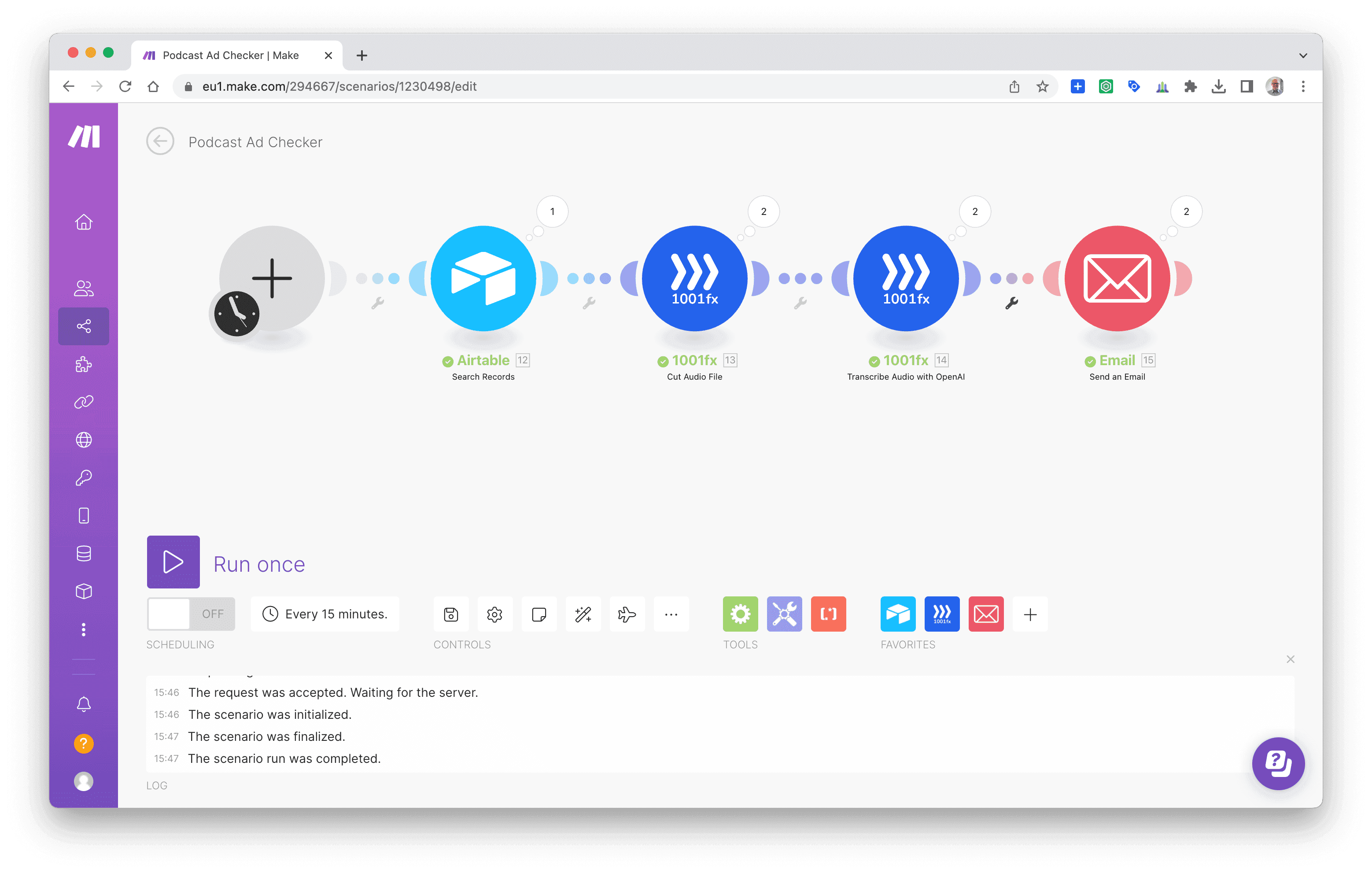
12.07.2024
Podcast Ad Checker Workflow
Setting up this workflow takes less than 10 minutes.
Podcast hosts often use dynamic ads in their podcasts. This means they tease the ad at a fixed point in the podcast and then tell the dynamic ad server to insert an ad at that point. This is completely dynamic and cannot be controlled by the podcast host.
But what happens if the ad server fails to deliver the ad? The podcast host will lose money because the ad was not delivered.
Note: This workflow was inspired by a complaint from Philipp Glöckner of the German Doppelgänger podcast (https://doppelgaenger.io) in episode 232 (https://www.doppelgaenger.io/232-chatgpt-4-%f0%9f%91%80-tiktok-meta-jobmarkt-recruiting-adobe-uipath-earnings/).
In this blog post, we'll discuss how to check the ads in a podcast by downloading the mp3, cutting out the intended sequence, using OpenAI to transcribe it, and emailing the result to the podcast host. Setting up this workflow takes less than 10 minutes.
We use make.com as the automation platform, Airtable as the data source, 1001fx's Cut Audio File function to get the right snippet, 1001fx to ask OpenAI to transcribe it, and email the result to the podcast host.
This scenario can easily be extended by comparing the transcription to a reference text and only sending the email if the text does not match the podcast host's requirements. But that is beyond the scope of this article.
Setting up the data source
Create an airtable with the following columns
- Podcast title
- Podcast mp3 file URL
- Start of episode in seconds
- Time to extract and transcribe
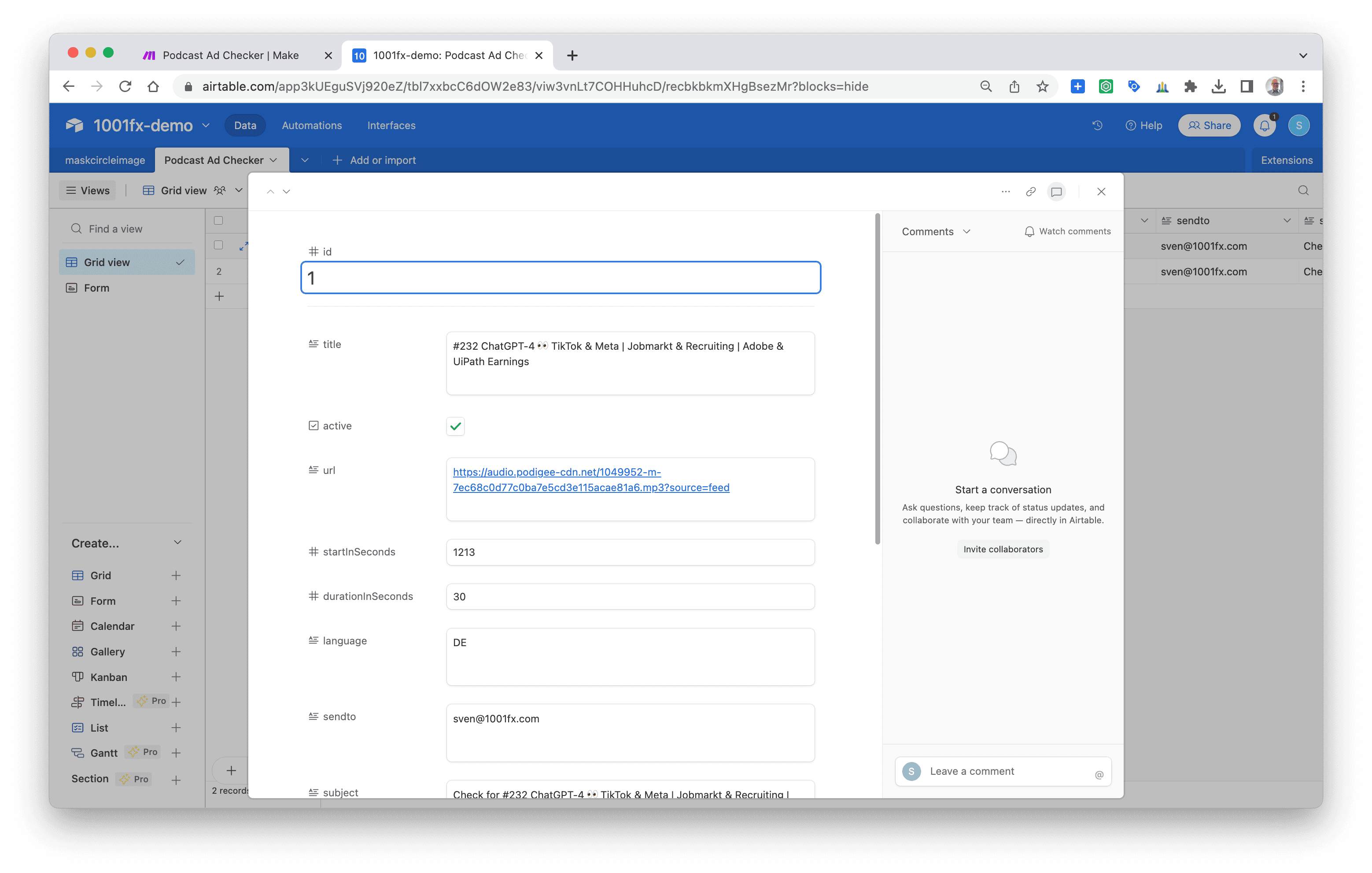
Creating the scenario in Make
Create a new workflow in your Make organization
1. Connect to your Airtable table
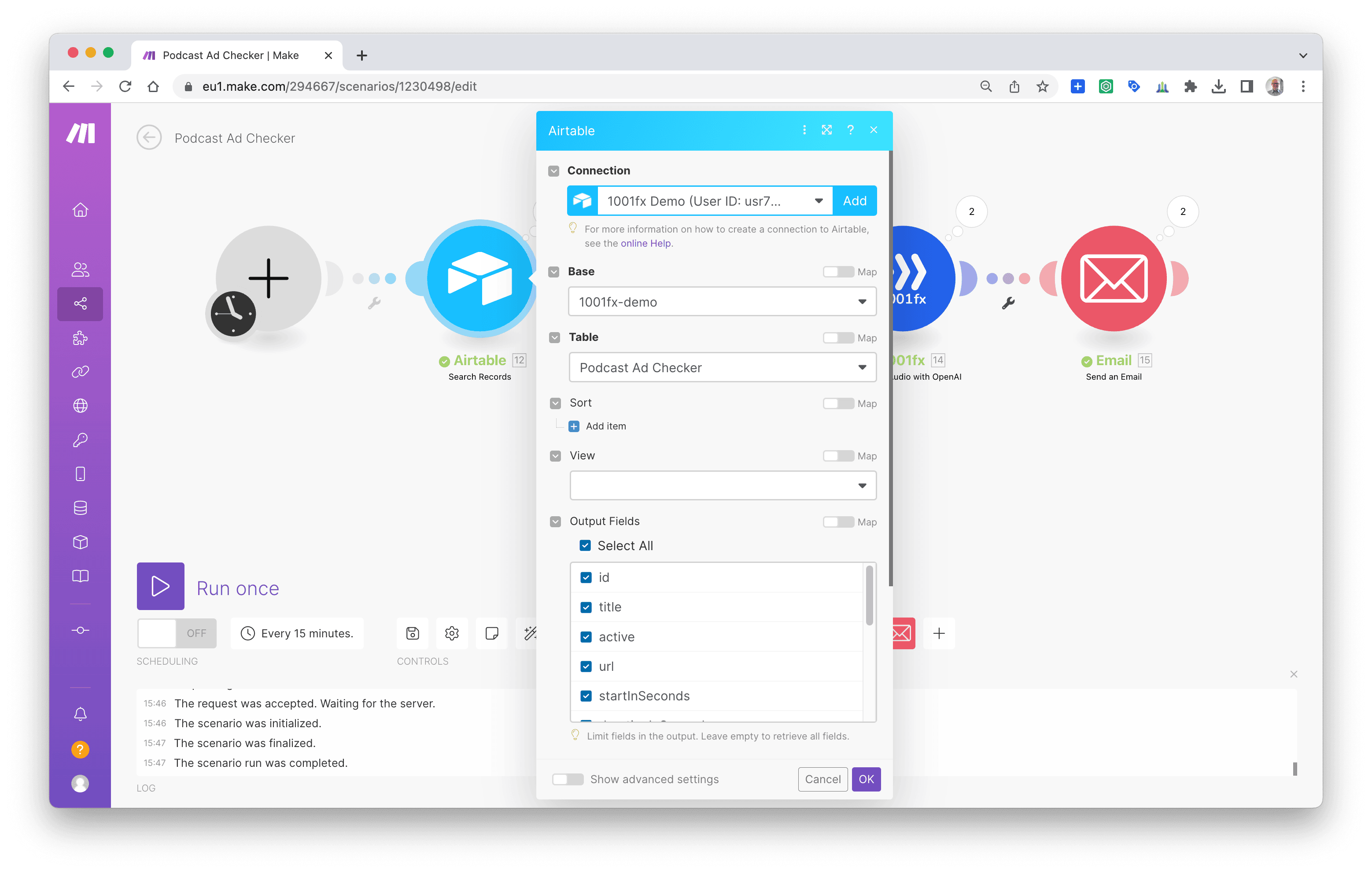
2. Cut the audio file
Take the parameters from the Airtable and cut the file using 1001fx's Cut Audio File. Out function will download the file to our server and cut the seconds from the starting point and create a new audio snippet for further processing.
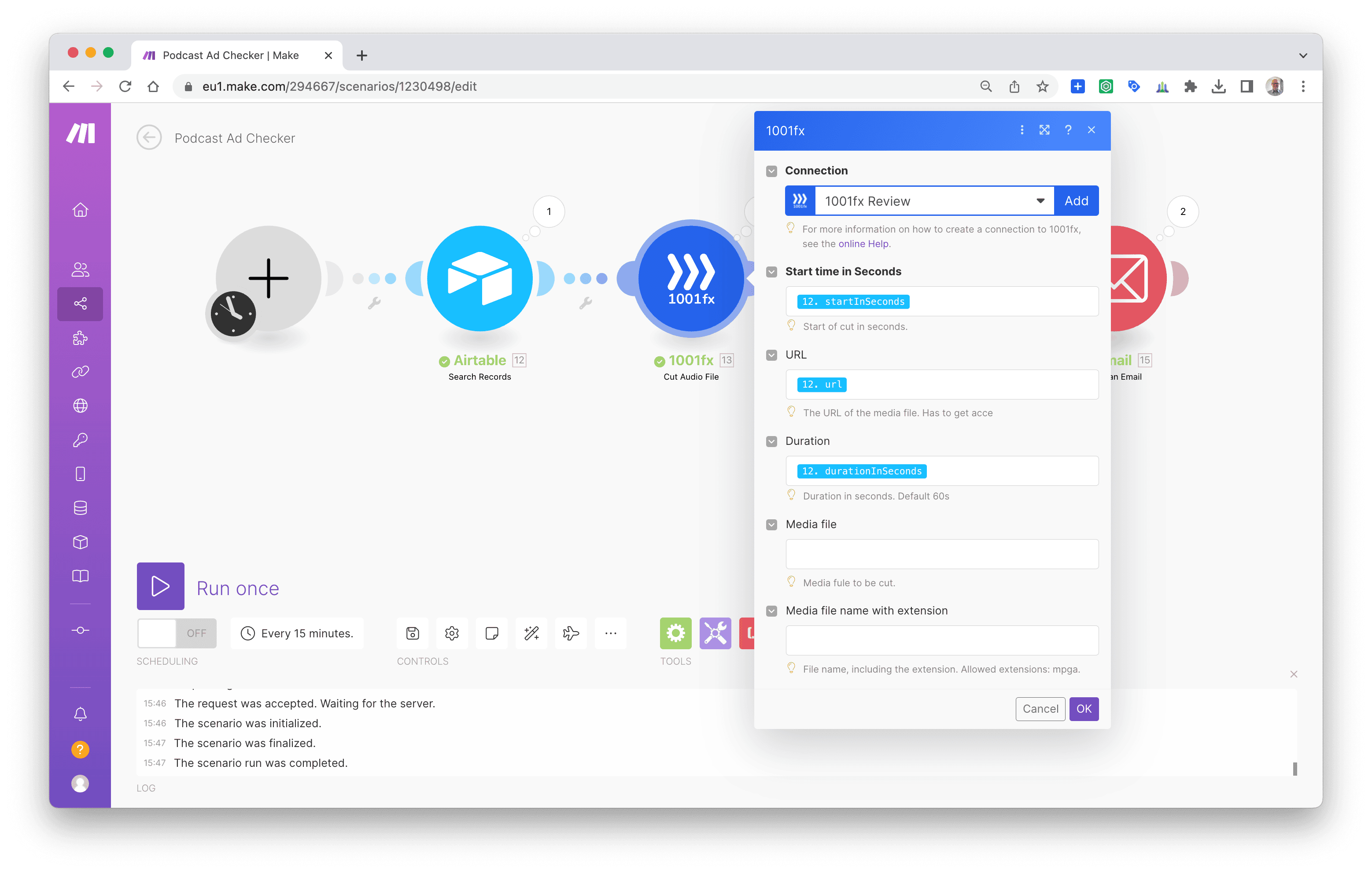
4. Transcribe the audio snippet
Pass the audio snippet to Open AI for transcription (the advantage of using 1001fx's function is that you don't need an API key for Open AI, and the OpenAI transcription function is currently not part of the public openAI Make module).
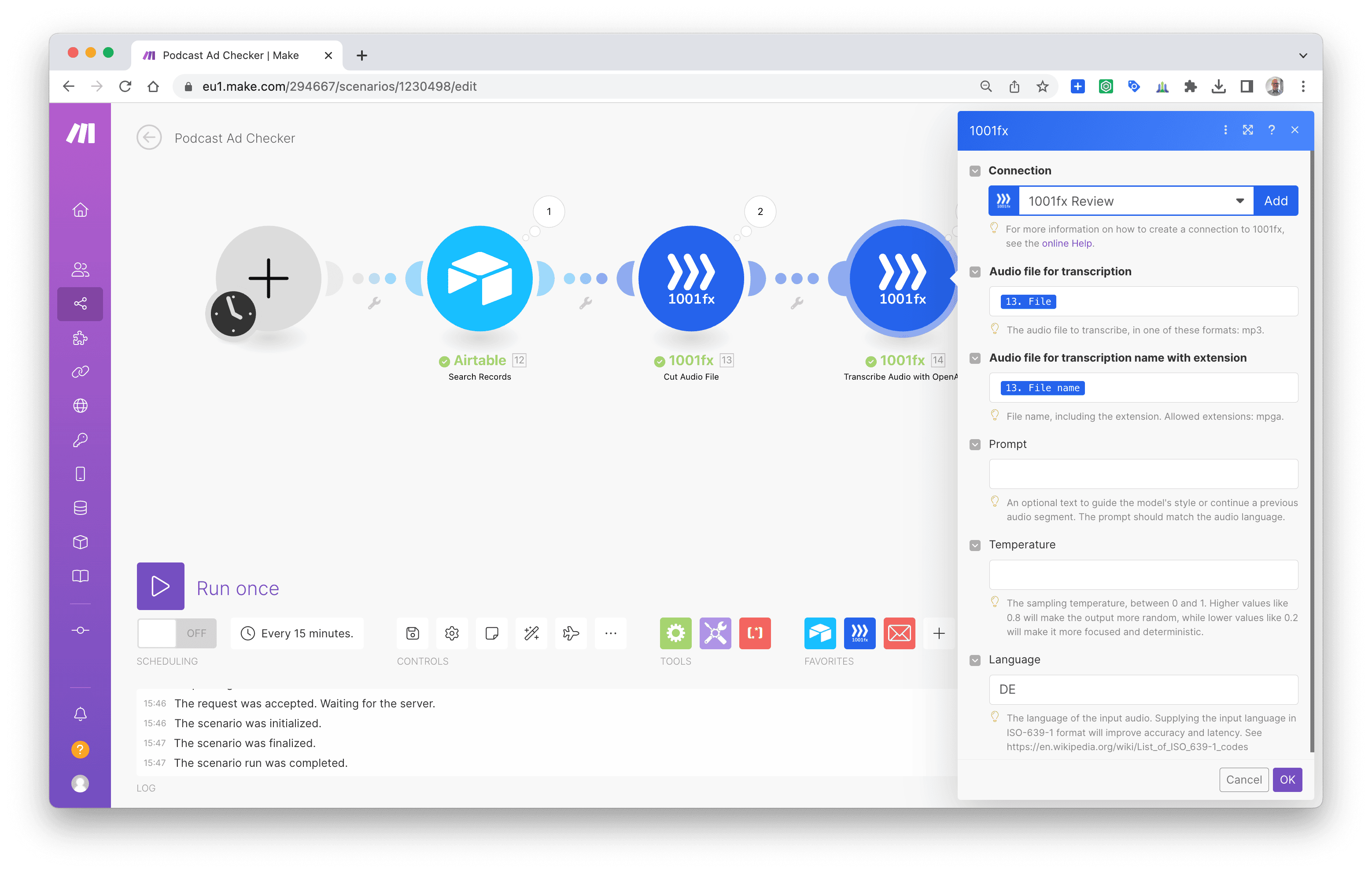
5. Send an email with the data to your email address.
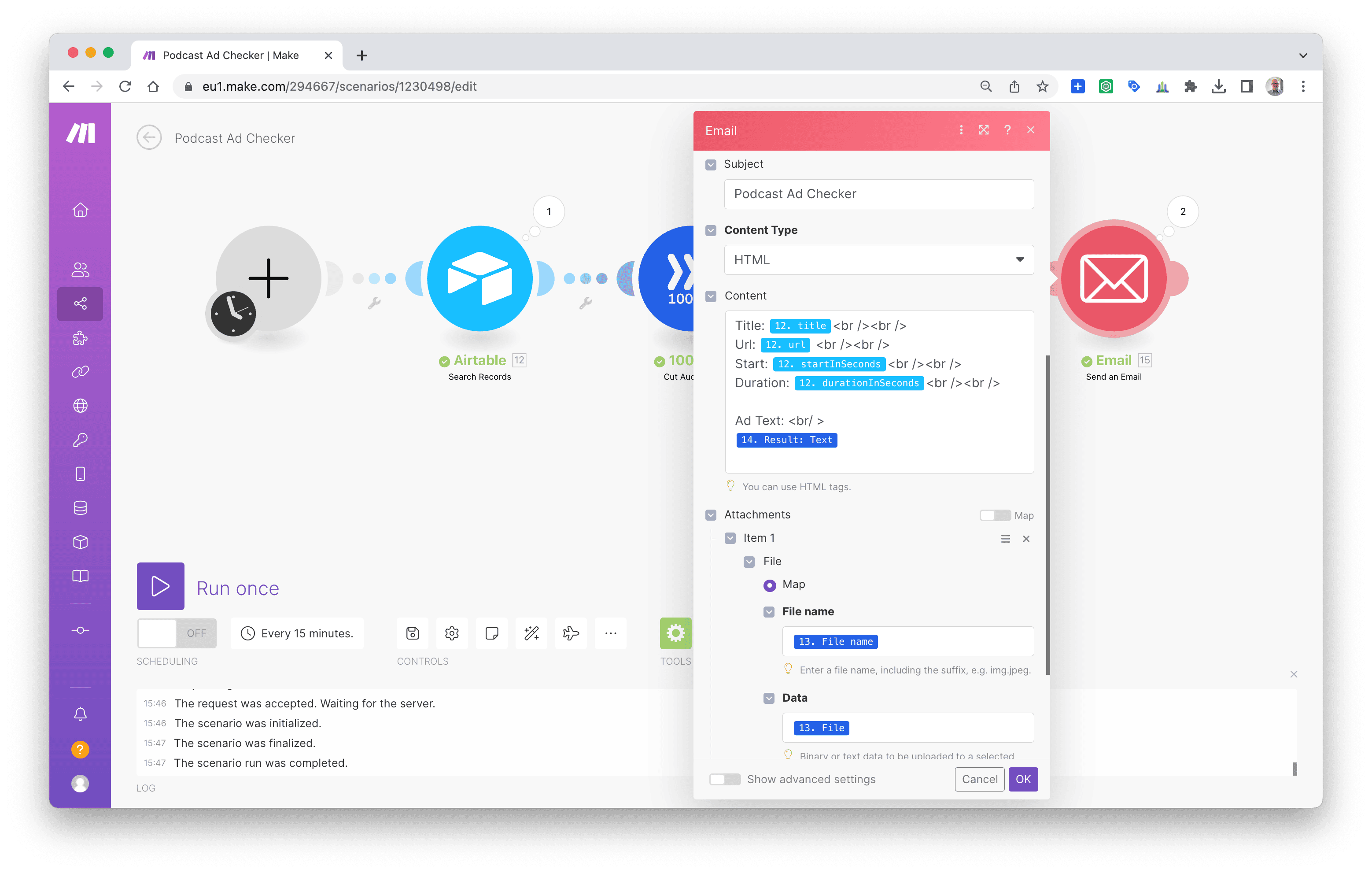
Done. This is what the email looks like
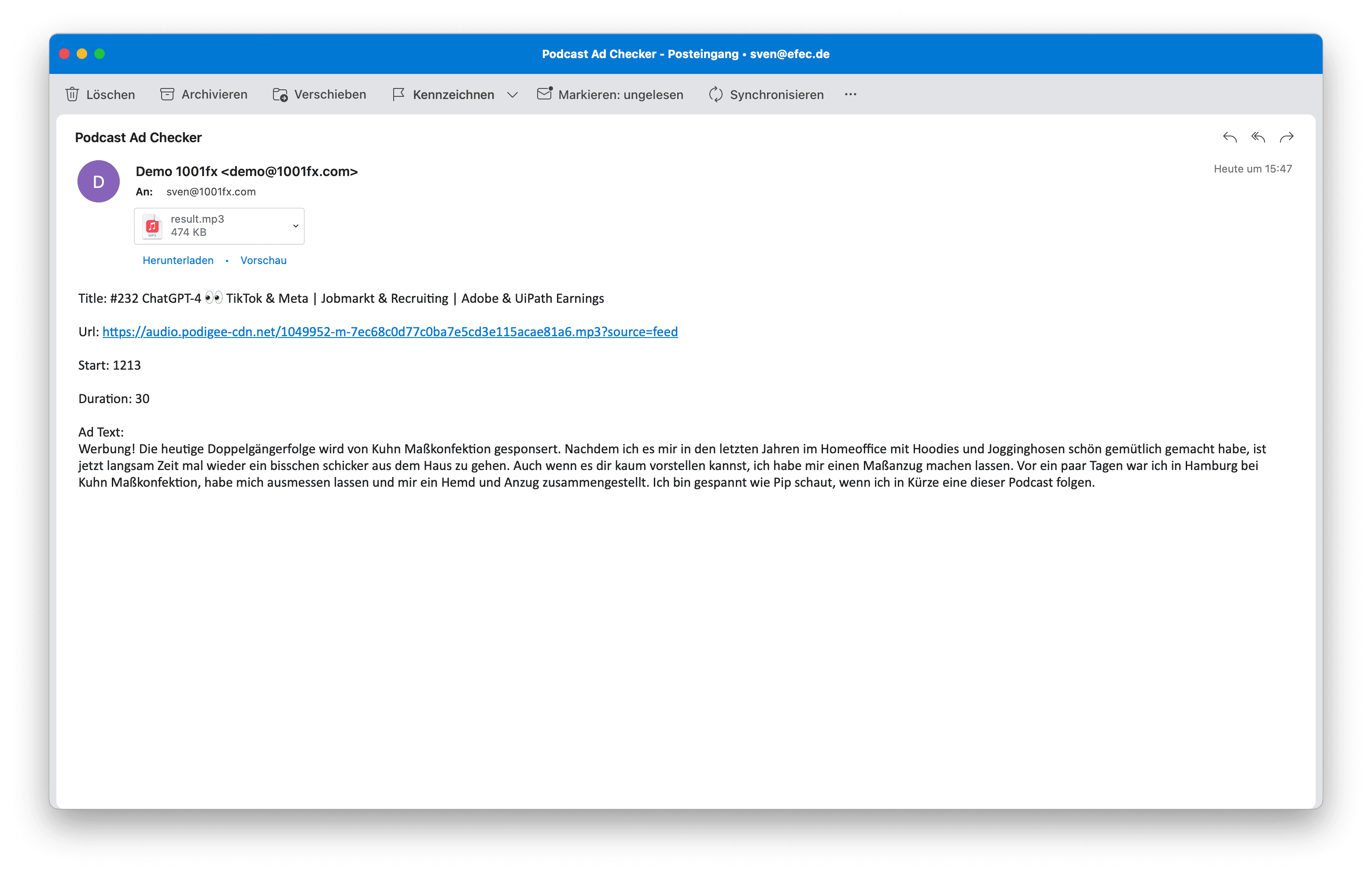
Conclusion
Checking ads in a podcast can be a time-consuming task, but it is an important part of ensuring that sponsors get the exposure they were promised and the podcast host gets paid. Setting up the workflow above will help you verify that all requirements have been met. It only takes a few minutes.
Did this post help you? We'd love to hear from you. Just reach out to us on your favorite social media channel or use our contact form.